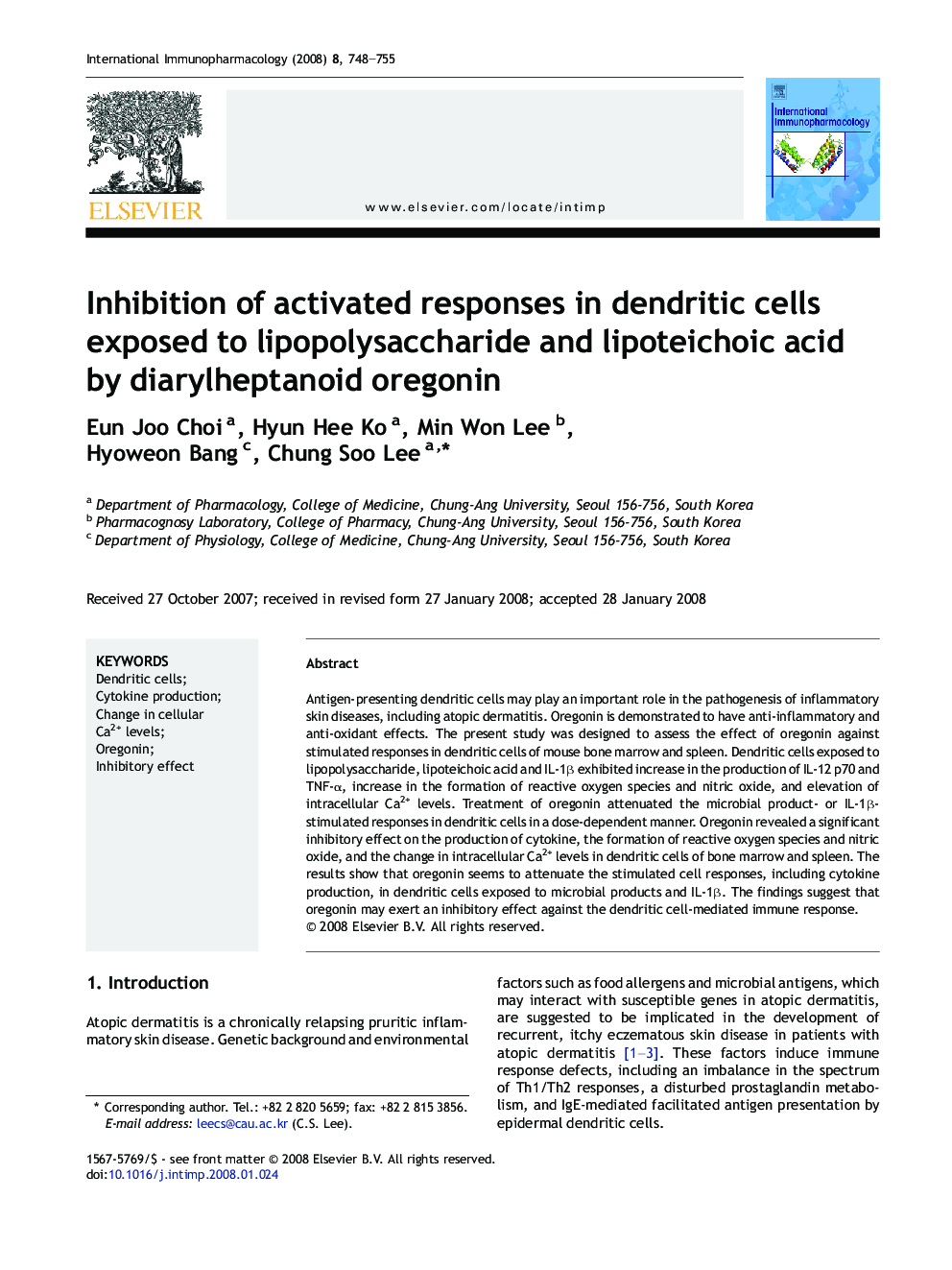| Article ID | Journal | Published Year | Pages | File Type |
|---|---|---|---|---|
| 2542136 | International Immunopharmacology | 2008 | 8 Pages |
Antigen-presenting dendritic cells may play an important role in the pathogenesis of inflammatory skin diseases, including atopic dermatitis. Oregonin is demonstrated to have anti-inflammatory and anti-oxidant effects. The present study was designed to assess the effect of oregonin against stimulated responses in dendritic cells of mouse bone marrow and spleen. Dendritic cells exposed to lipopolysaccharide, lipoteichoic acid and IL-1β exhibited increase in the production of IL-12 p70 and TNF-α, increase in the formation of reactive oxygen species and nitric oxide, and elevation of intracellular Ca2+ levels. Treatment of oregonin attenuated the microbial product- or IL-1β-stimulated responses in dendritic cells in a dose-dependent manner. Oregonin revealed a significant inhibitory effect on the production of cytokine, the formation of reactive oxygen species and nitric oxide, and the change in intracellular Ca2+ levels in dendritic cells of bone marrow and spleen. The results show that oregonin seems to attenuate the stimulated cell responses, including cytokine production, in dendritic cells exposed to microbial products and IL-1β. The findings suggest that oregonin may exert an inhibitory effect against the dendritic cell-mediated immune response.
